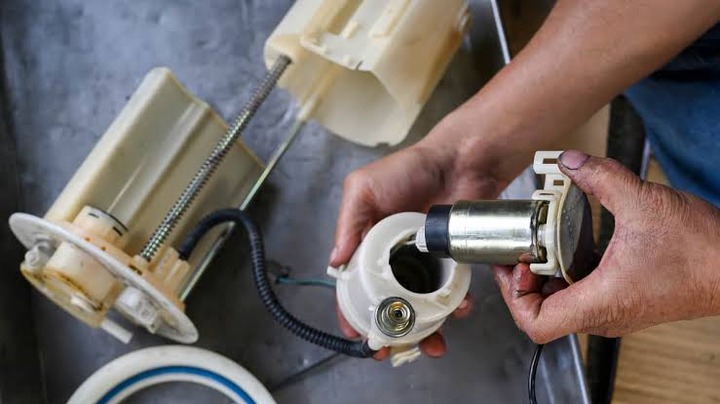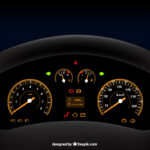7 Signs of a Bad or Failing Fuel Pump

Fuel pumps are standard in almost all modern automobiles with internal combustion engines. Fuel must be delivered from the gas tank to the engine at the proper pressure to meet performance requirements, and this is the job of the fuel pump. The gasoline pump is started and pressured when the key is switched on, and in some cars, this can be heard as a subtle whine or hum. The majority of current automobiles use in-tank electric fuel pumps. On the other hand, some automobiles come with inline or mechanical fuel pumps. Any faults with the fuel pump can result in serious drivability and performance concerns because it is the part in charge of giving the engine the fuel it needs to run. One or more of the following 8 symptoms, which warn the driver of a potential problem, will typically be produced by a defective or failing fuel pump.
1. Engine Sputtering
Sputtering engines, which often occur at high speeds, are one of the most reliable signs of a damaged fuel pump. The fuel pump may be malfunctioning if you are continuously traveling at a high speed and the engine abruptly sputters before going back to normal operation. In this situation, the fuel pump is unable to supply the engine with a continuous stream of fuel at the ideal pressure.
2. Whining Sound Coming From Fuel Tank
A loud whining noise is one of the first signs of a fuel pump issue. When running, an old or worn fuel pump may make an audible whine or howl. During routine functioning, most fuel pumps may emit a low hum; however, an extremely loud whine emanating from the fuel tank is typically a symptom of trouble. There might not be enough fuel, the pump might be broken, or the fuel might be polluted.
3. High Temperature Stalling
Multiple internal vehicle issues can cause stalling, but take attention when it occurs regularly at high temperatures as indicated by the car’s thermometer. Stalls and a rising temperature frequently point to a problem with the fuel pump motor. It may be a sign that the fuel pump needs to be replaced if stalling persists while the temperature gauge is rising.
4. Having Trouble Starting
The inability to start is a different sign that a gasoline pump is malfunctioning. When the ignition is turned on, the fuel pump runs continuously, which causes them to gradually deteriorate and weaken over time. While a poor fuel pump may still be able to pump fuel, the vehicle may have trouble as a result of the low pressure. A damaged gasoline pump can make it harder to start the car and, in more severe circumstances, may even make it necessary to turn the key several times before it will start.
5. Power Decrease Under Stress
A lack of power when the vehicle is stressed, such as when driving uphill or when towing a big load, or while accelerating is another sign of a malfunctioning fuel pump. The gasoline pump’s weakened components are unable to keep up with the increased fuel needs of the car in these circumstances, causing the engine to shut off. The vehicle will feel as though it lacks the ability to move or sustain the proper level of power under these conditions. If the fuel pump is to blame, it can no longer precisely control fuel pressure and provide the right amount of fuel to the engine.
6. Gas mileage is low
If you seem to be filling up your automobile more frequently than usual, there might be a problem with the gasoline pump. It’s possible that the fuel pump’s valve is stuck open, letting more fuel than necessary into the engine system. The extra fuel in the engine is not stored or put to use.
7. Surging Car
Vehicle surging may result from irregular resistance inside the fuel pump motor, which is an indication that the fuel pump needs to be repaired. Surging like pressing the gas pedal. However, it happens quickly and randomly. If it occurs frequently, there might be an issue with the gasoline pump.
Almost all cars with internal combustion engines have fuel pumps, in one shape or another. The majority of fuel pumps are durable. However, it is usual for fuel pumps to need replacing as the vehicle logs a lot of miles. Regularly leaving less than 1/4 of a tank of petrol in your automobile is another factor in fuel pump failure. Have your car checked out by a qualified mechanic to see if the fuel pump needs to be changed if any of the aforementioned symptoms are present, or if you have any suspicions that it could.







